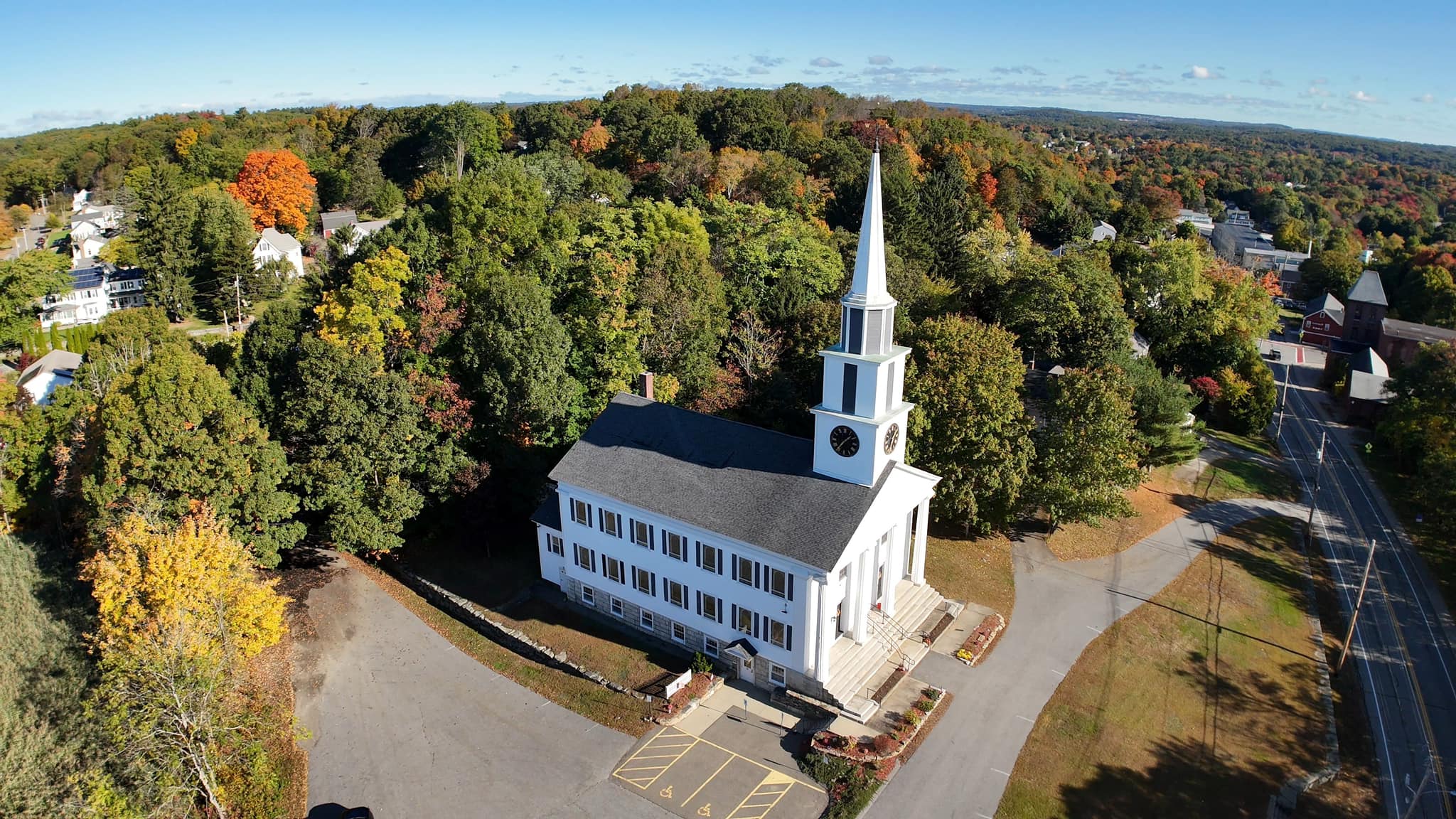Sermon Sunday May 18th, 2025
Rev. Norman A. Michaud
Acts 11: 1-18
“God has Broken Through for the Broken.”
Christian scholars attribute The Acts of the Apostles to the Gospel writer, Luke. The Acts of the Apostles appear in the New Testament after John’s Gospel. Scholars believe Acts was written much earlier than John’s Gospel, probably between 65 and 85 CE. In Acts, Luke travels with Paul, records Paul’s ministry, and encounters other disciples. Paul refers to Luke as “the beloved physician” in Colossians 4:14. This Fifth Sunday of Easter, Luke shares how Peter came to see and understand that All are welcome to embrace Christ, for Christ embraces All with abundant Love. Our Triune God embraces all Creation without prejudice, no matter who we are or what we have done or left undone during our lives.
Jesus, Peter, and all the disciples were Jews. The disciples and Pharisees recognized Jesus as a Rabbi, or teacher, who served the people. Jesus interpreted the Hebrew Bible at the temple in Nazareth and argued with his fellow Pharisees about interpretations of Jewish Law. The entirety of both the Sermon on the Mount and the Sermon on the Plain presents Jesus’ radical vision of God’s realm through his interpretations of The Law.
Acts 11 shows how the Good News changes Peter, and Peter’s vision crosses boundaries for his time and our own. After all, Christ’s central Commandment is “to love,” and such Love includes all, including enemies, who are to be forgiven seven times seventy-seven times. The Acts of the Apostles features Peter’s vision story as reconciliation.
A significant issue dividing early Christians was circumcision, as well as dietary laws and the observance of Jewish Temple rituals. In our time, divisions persist and have been amplified. We divide ourselves through denominations, skin color, countries of origin, sexual preference, income, education, age, and illness. All divisions carry corrosive weight in our national discourse, and fear corrodes our national identity. The more we are divided, the more oppressors receive greater authority and power, and tyranny rises, dividing us further. The more individualized and isolated we become, the more we diminish the core message of Christ, which is to love and share abundance with all.
We are products of our society. I recall being in first grade and divided into reading groups based on our ability. The elderly teacher named our reading groups after birds, her intent being to disguise our reading levels. I was placed in the bluebirds. I like bluebirds, but our group members all knew that we were the least functional readers when we labored to read out loud. We knew that the Seagulls were better and the Eagles were the best.
Tracking persisted throughout my teaching career. The best students were culled into AP. The weaker students were tracked into non-college prep classes. AP classes often had only 6 to 12 students. The non-college prep classes had 24 to 30 students. Usually, these larger classes had several Teacher aids who provided individual attention for the most needy students. Though it helped academically, the labeling made the weakest students stand out. Most resented the additional attention and vocalized their resentment. In Kittery, Maine, Traip Academy serves two Zip Codes.
The town is divided by an estuarial waterway. A bridge divides the community into two Zip Codes. Kittery’s Zip Code is 03904, and the other side of the bridge, Kittery Point, bears the Zip Code 03905. Students, parents, and the town’s governance know that students from the 04 are underprivileged and the 05’s are privileged. In 05, there were no trailer parks or affordable housing. These codes separate the “haves” from the “have nots.” Generally, the 05 students took AP and honors classes. Local students who shared classes in the elementary school found themselves separated by property value and income. Such divisions are standard most towns and cities. Students are acutely aware of the differences and divisions within the community are widened.
Divisions break down unity. People create what separates us from becoming disciples of Christ. In Christ, there is no East or West, but we construct separations, ideas of “us” verses “them.” Christ said, “Love one anther,” when he left the disciples after the Resurrection. We claim to be disciples ourselves and must follow Christ’s essential commandment.
Many Christians can name the hour and the place of their salvation. For some, this took place answering an altar call at Billy Graham’s crusades in the 1960s in being “Born Again.” For Reinhold Niebuhr, a significant theologian in the twentieth century who helped establish the United Church of Christ, when asked if he could name the time and place of his salvation, he replied: “2,000 years ago on a dusty hill named Golgotha outside Jerusalem’s wall.” Both answers provided by Graham and Niebuhr work for people. Niebuhr influences me.
In the spirit of Niebuhr’s declaration, Acts 11:1-18 also qualifies as a timeless and defining moment in salvation that shows a new Way in every Christian’s life. Acts shows movement away from Judaism’s codes and shows the path to a faith that is open to all, including the Gentiles. The Holy Spirit gives Peter a new understanding of God’s acceptance and salvation for all Creation.
Routines provide a level of comfort and security. We know where to go and what to expect. However, the inevitability of change means we must make adjustments we are often not ready to make or we are unwilling to change. The early Christians had such moments. They were accustomed to what they knew and resisted when confronted with change. The Apostles were shown a new way to live in God’s realm.
Transformation or change of the heart that goes beyond our traditions, laws, and rituals that exclude us is necessary to receive the outcome offered in Peter’s vision. There is plenty for all on the sheet that descends from Heaven in Peter’s dream. God instructs him to cook and consume all that is offered to him can be consumed. Nothing that enters the mouth is unclean. What comes out of the mouth are the words and codes that divide us and also defile us. The extensive codes presented in Leviticus, Deuteronomy, and elsewhere in the Old Testament are cast aside by Jesus in his words and actions. Yet we want to cling to the past and fail to see the promise of Pentecost.
Change hinges on self-awareness and truth-telling. The reluctance to see ourselves as we are hinders the transformative work offered in grace. The reluctance to name our humanity may make others think we are “holier than thou” and not welcome at our table. This work is ours, not someone else’s job to fulfill.
The early church leaders heard Peter’s story of his transformation. They knew Paul’s message as well which is to open eyes and hearts to all. They finally got it. “When they heard this, they were silenced. They praised God, saying, ‘Then God has given even to the Gentiles the repentance that leads to life.” (Acts 11:18).
What a relief they were now willing to receive the Gentiles among them. We Gentiles grew the church.
Living God, let us all be open to others who do not share our looks, culture, or faith. Let us open our hospitality and show that we are Christians through our Love.
Amen


